What reassuringly startles the mind – while settling the heart – at times is the sheer symmetry of landscapes and spaces, and the cultures that reside within and with them. The methodology that people use to deal with spaces and elements, leagues away from one another, remind (me at least) that there are some fundamentals of living that remain entrenched. Our project, In from the Outpost, intends to access moments and spaces and traditions of the natural world, filming, recording, and communicating those moments into a program.
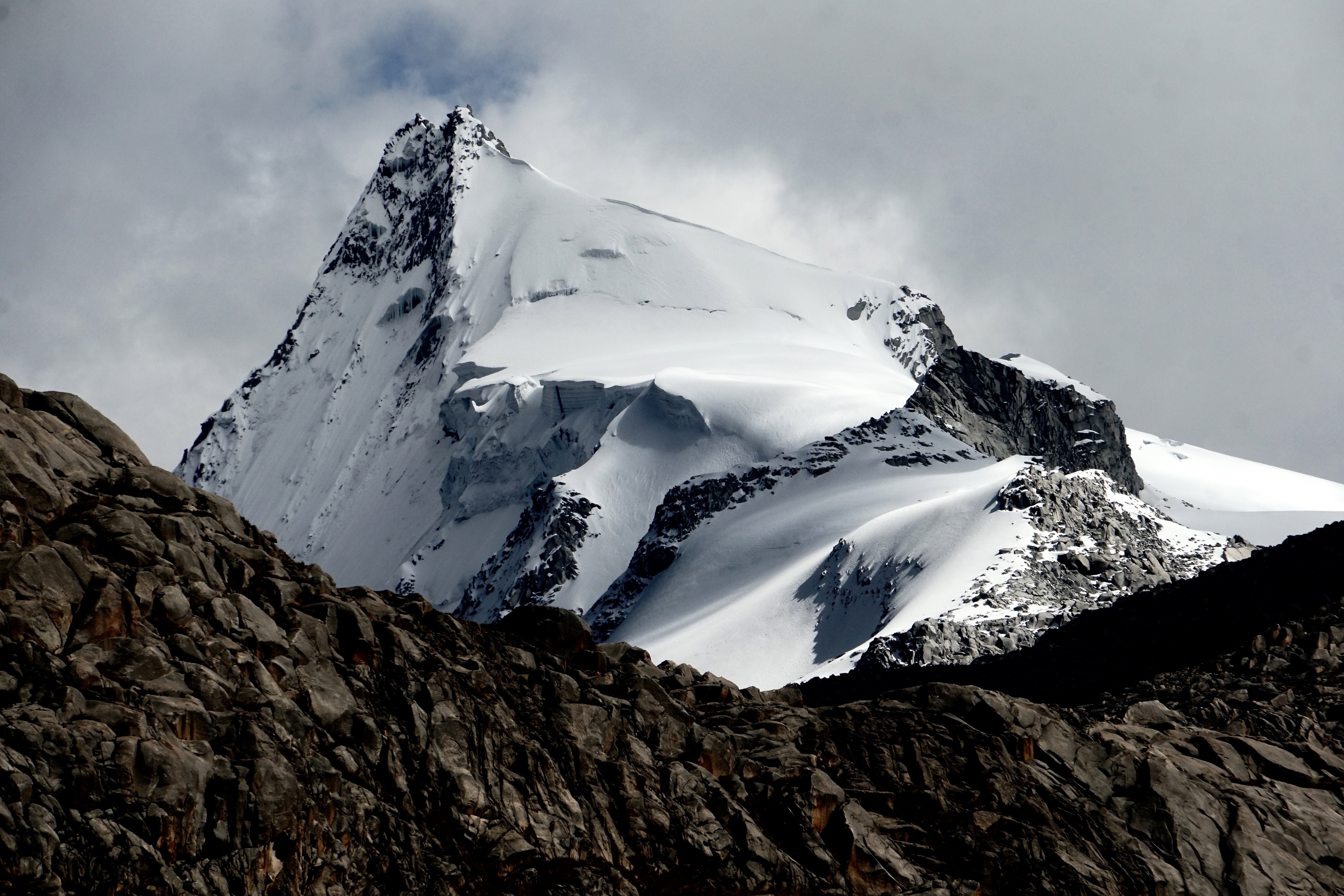
The sacred Pariaqaqa Mountain which has been a destination to worship and pay tribute to for centuries. The Sapa Incas (royals) went so far as to take off their ceremonial robes and visit as ‘common folk’. Our own journey to its shoulder was marked with tributes of our own; the Quintu offering of coca leaves to the mountain deities (apus) and to the Pachamama was made in regular intervals. Part of our intention with In from the Outpost is to peer into these spaces and cultures and dig a little deeper.
Fundamentals where the earth and her ‘pieces’ and moments are paid tribute to, considered and revered because they feed they provide a context to living. The beliefs and desire to keep the deities of the natural world content speak to a respect and view of collaboration with the earth rather than an assumption that mortals can override, obscure, or simply bend the world. Pachamama was regularly offered up coca leaves to sate her and revere her spirit on our journey and on a personal level it was utterly natural and consistent for us to show this simple respect for this, our sprawling home of mountains and water and trees and each other. Tributes to the earth surely cannot go astray.
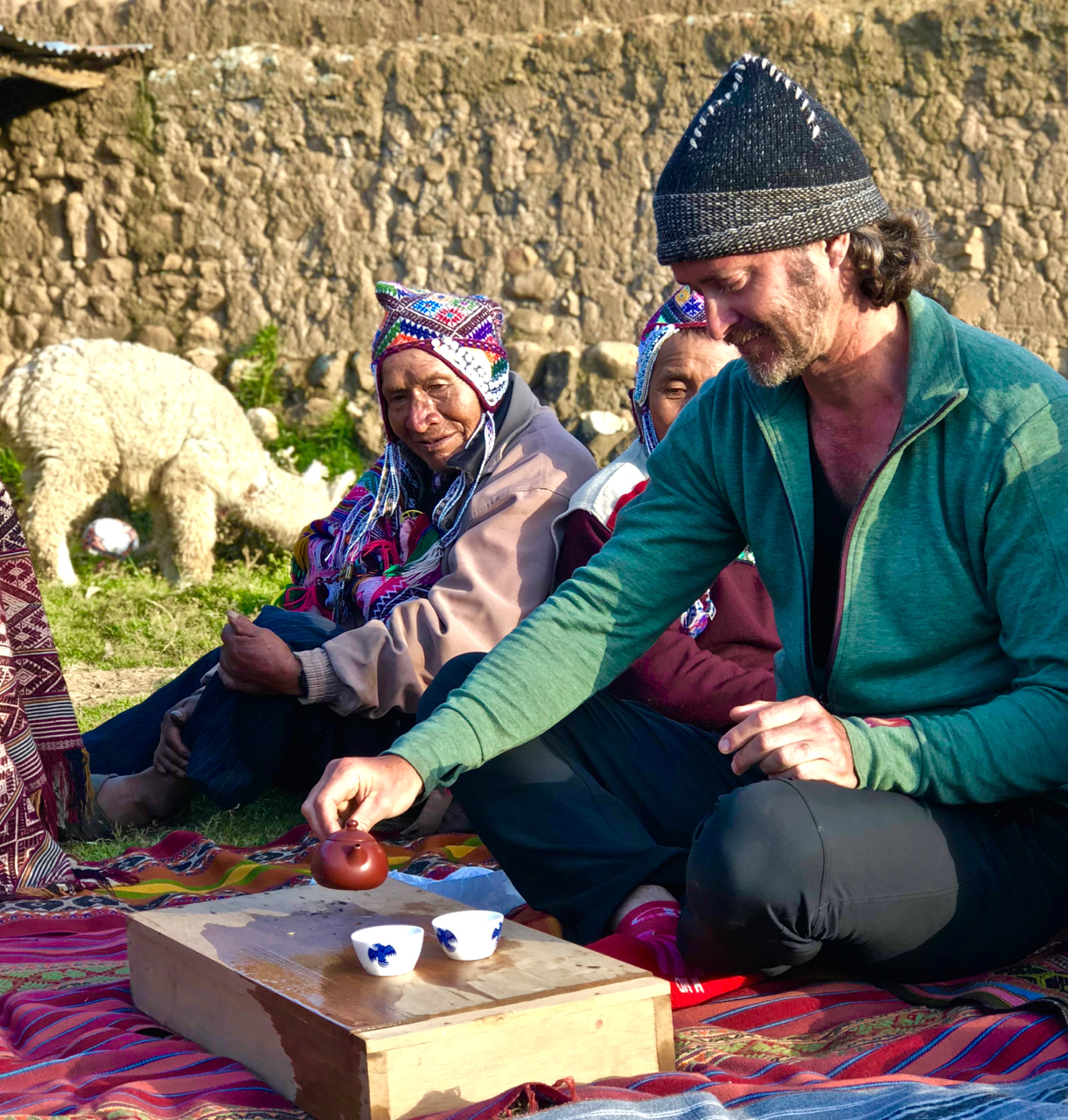
An honour to be able to contribute and serve to locals some of my Puerh. After days with these mountain sages who see life simply and remarkably clearly (and sharing bags of coca) I was able to serve their community tea leaves from leagues away in Yunnan. Though the cups and paraphernalia was unfamiliar, the offering of vegetal matter was entirely consistent with their values. Photo: Jackie Bobrowsky.
This journey (laden with tea but looking forward to coca) into the Andes reinforced very quickly how much runs parallel to the struggles, the beliefs, and the beauties of the Himalayas. A team of us had set out to trace and film portions of the articulated brilliance that is the Qhapaq Nan, and some of the personalities that reside alongside it.

Victoriano who like his grandfather before him, helps to convene multiple communities together to rebuild an ancient ropeway bridge every year or two…and bring communities together to ensure the bonds are strong. His work and that of the communities perfectly embodied the concept of Anyi for me.
The Qhapaq Nan is designated as one the main Andean road that striated and spread throughout the Andean world. Scholar Victoria Castro called it “an ingenious humanization of a fractured geography”. It will be the first part of our series “In from the Outpost with Jeff Fuchs” and what a space to start!!
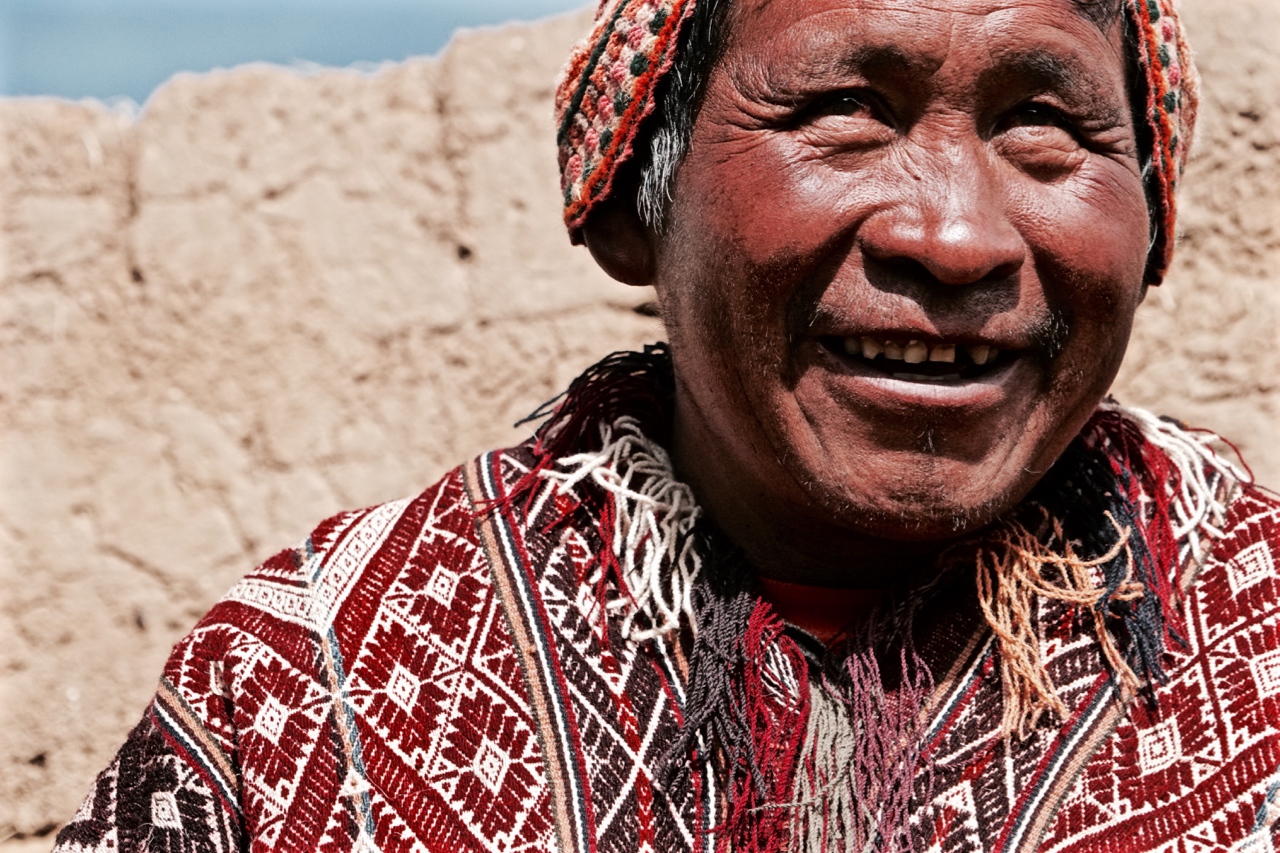
Village headman who when asked about the ‘modern’ world spoke of how cities had become places to disconnect from one another and Nature. He mentioned quietly too about plastics and how it flew like birds through the sky now. Beings like this should be the ones writing policy and being consulted for legislation.
This post is a tribute to a few moments, figures, and ‘feels’ along that route. Images never quite represent the entire visceral experience of a moment but they can infuse and hint at them.
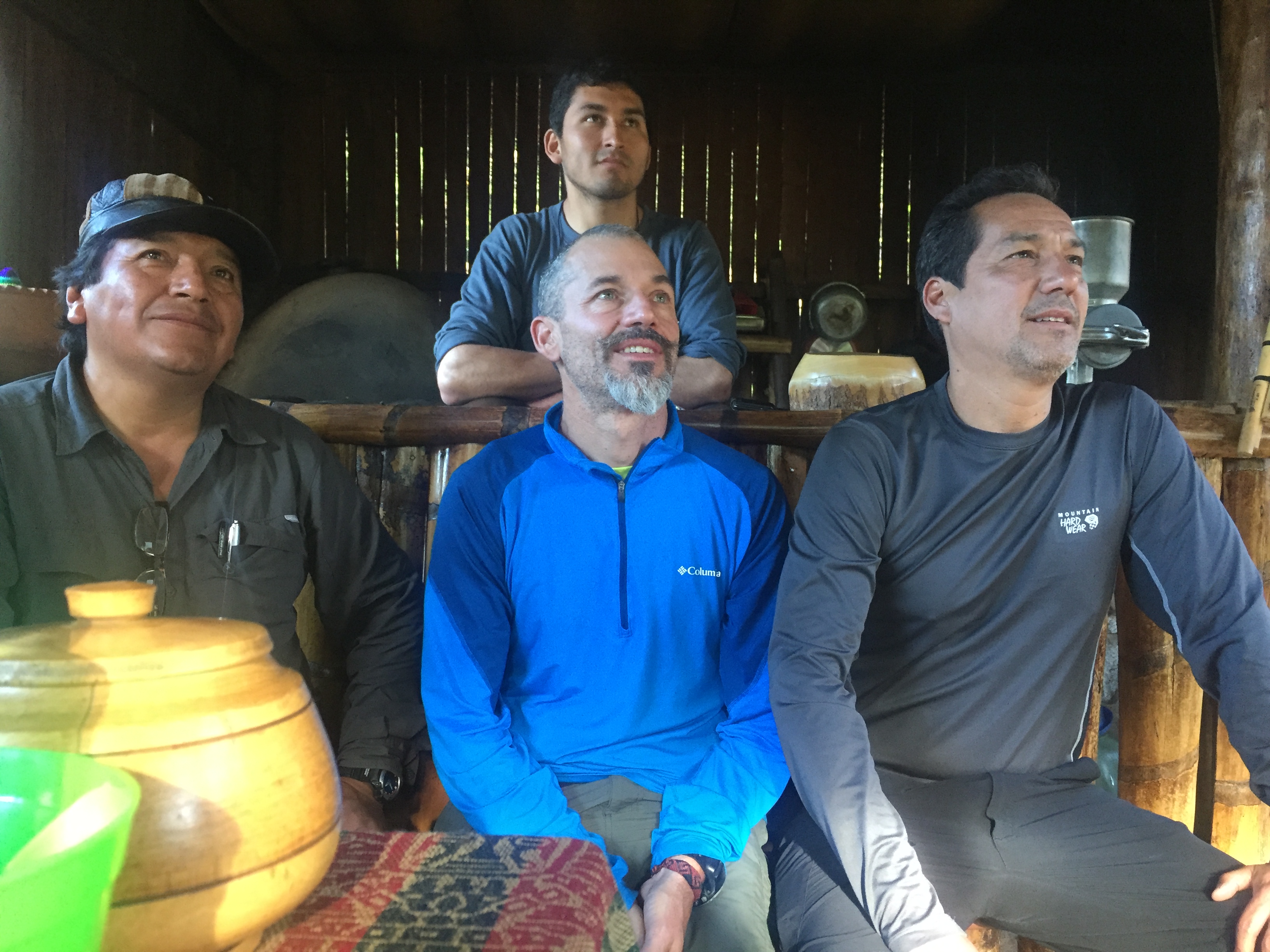
Collaborations cannot be overstated when the spin nicely. Here from left, Wilfredo, Domingo, and Jackie all watch a tv screen in a rare rest to watch a local football match. Fortunate that such friends were along for the journey.
One of the concepts that quickly became central to our journey and to our relationships was the concept of ‘Anyi’ (Quechua word that translates roughly as ‘reciprocity’).
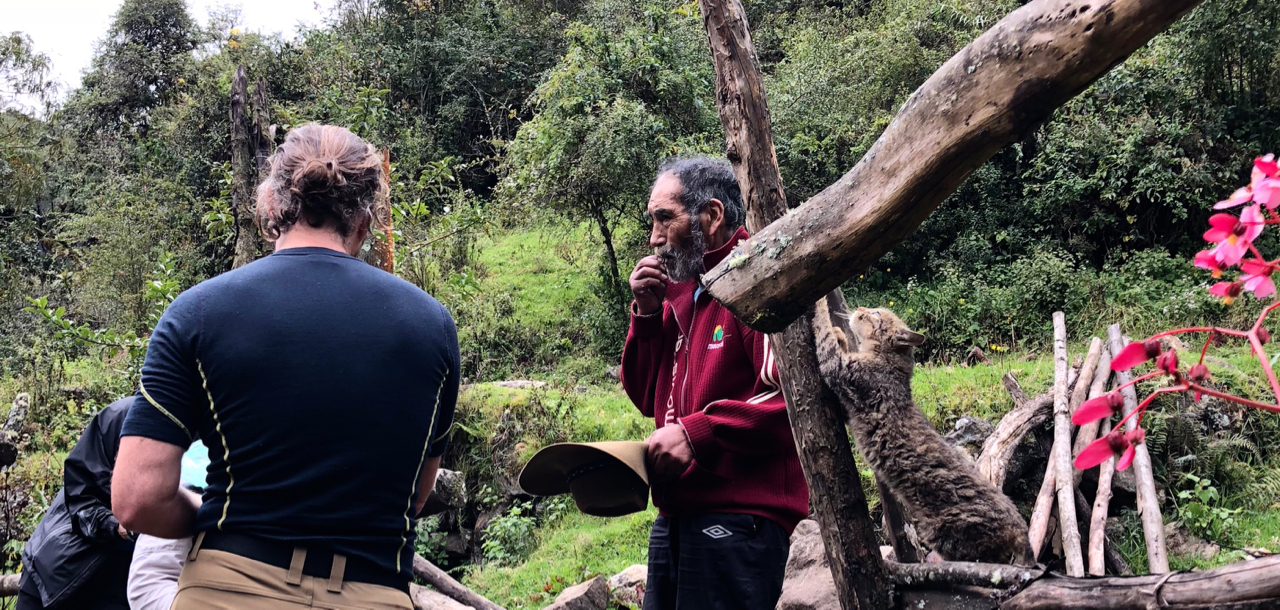
Some time with Antonio near Salkantay chewing coca and listening to his tales. Living on his own, in his 80’s he embodies humble industry and energy…and my back.
Fortunate I was too, to have an incredible team of beings to travel and bond with and learn from. Travel can be made something magic with the right combination of friction, wisdom and rampant energy and our crew was nothing short of epic in these and so many other qualities. In from the Outpost as a concept is as much about the intricate unplanned moments as it is about any particular space or moment. Interactions are everything, however small and understated and we had so many of consequence.
There was the octogenarian Antonio who lived on his own and waxed eloquently about nature and the individual’s will. His words tapped into my being like a live wire. The hundred year old woman who had lost most of her site but still wove using colourful naturally dyed wools, and there was the utterly thin-aired wonder of the Pariakaka sacred mountain region where Puma’s still come down from their high altitude homes to target llamas in nighttime raids…
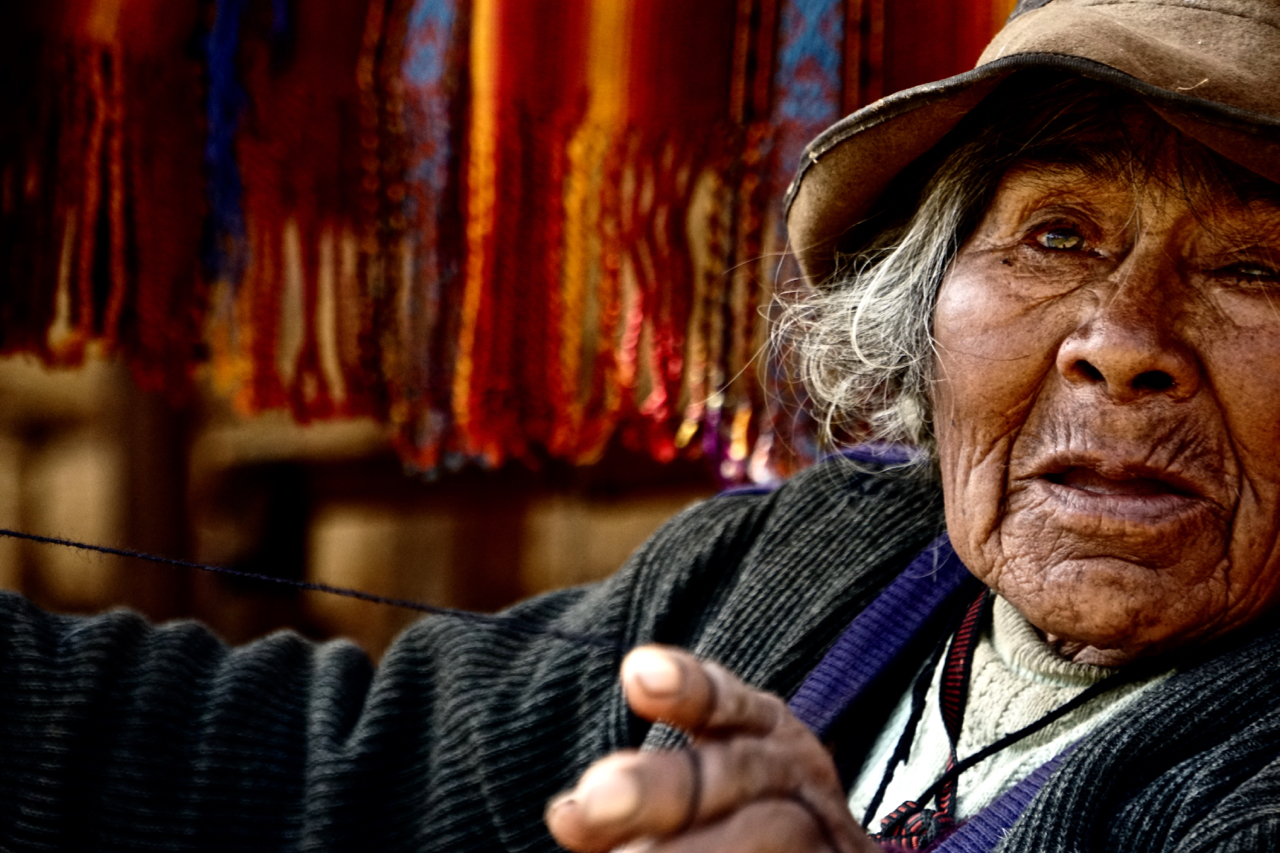
The aged continue to do what the young do until they simply must slow down. Activity is key and the Andes (so like the Himalayas in this way) instil this wisdom into every being in their folds.
And then there was the offering of tea on Machu Picchu when I served up a great He Kai raw Puerh tea to our group amidst the citadel and wicked green hills.
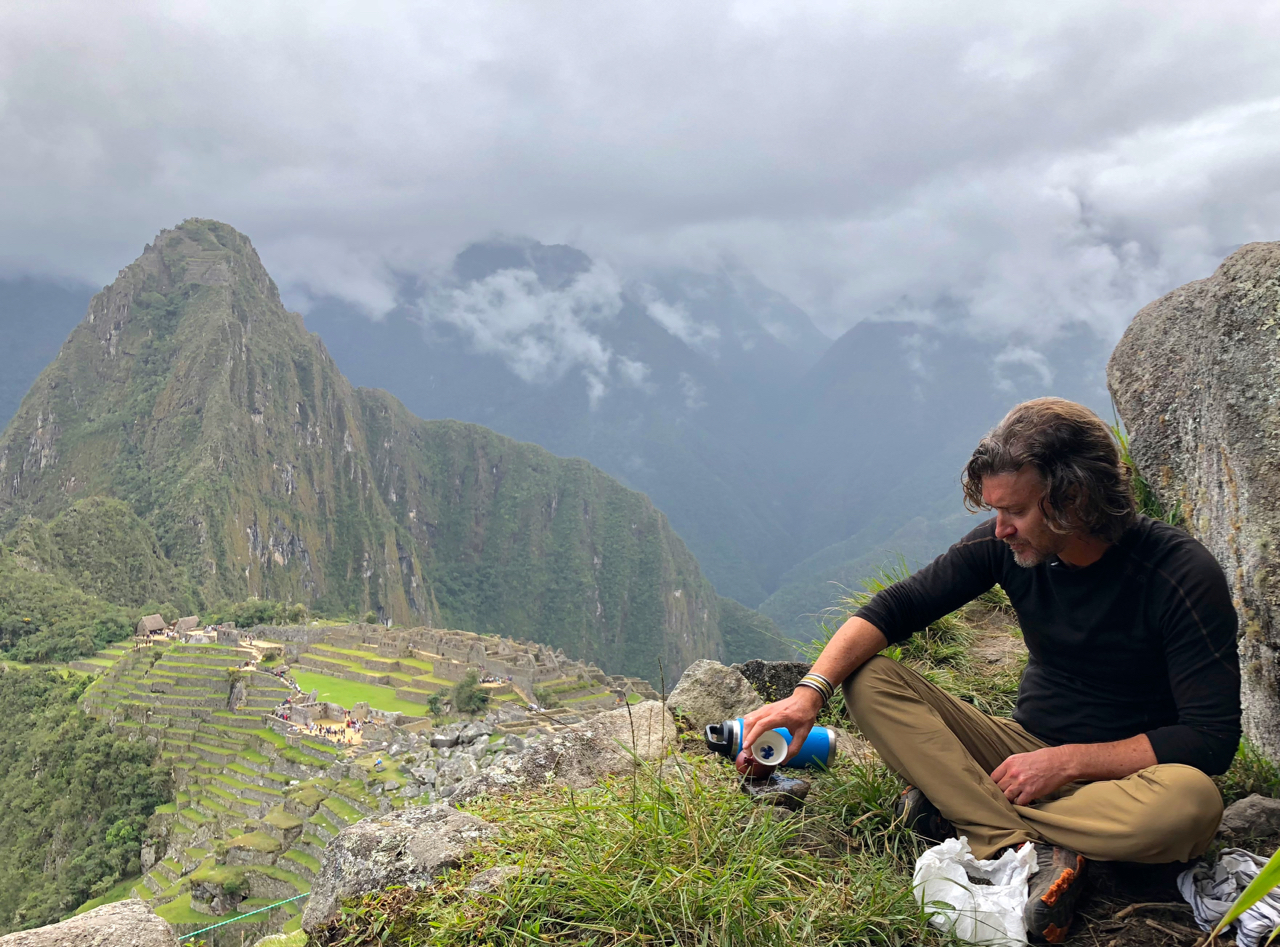
Above the 15th century brilliance of Machu Picchu I serve some Puerh and hand it out to our team. A stunning venue for the bitter leaf.
Will be updating as our ‘In from the Outpost’ project develops.
